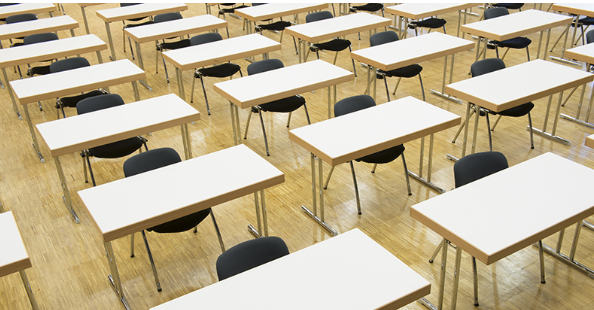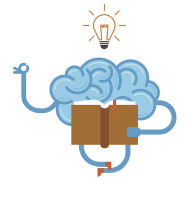So, we’re learning our subjects at school and we’re really enjoying them, but just to ruin the enjoyment, we have to do a test. Tests are uncomfortable. They make us stressed and anxious. Why is this? People are afraid of being wrong and being told they are wrong. Nobody wants to fail. We are conditioned by society to be scared of failure, which is annoying because it is guaranteed for everyone of us that we will fail at various things many many times. We didn’t choose to be scared of failure, but we can choose to remember that it does not make sense.
We use assessments ourselves all of the time to assess whether or not someone likes us, or how good a movie is or a song, or band and so on. Assessments are a necessary thing. We learn many things to gain a qualification. We want a qualification to show various people and ourselves that we can do something or other and to what standard. This means some sort of assessment is entirely necessary. Tests are not the only way we can assess, but they are the most common, and most likely you will have to do many in the course of your life.
So, assessments are just something we have to live with and exams are the most common type of assessment and so let’s learn some tips on how to best get the marks in an exam.
Exam tips to follow during the exam
- To reduce the stress you can imagine the test as something else that you see as less important, but that you still want to do well at such as a video game. Each question is a new end of level boss or challenge. Just do the best you can in each case.
- Keep an on the clock. You know how much time you have and you know how big the test is. Try to move through the test so you will have the right amount of time on all of the questions. It would help to practise this a few times before the real thing by timing yourself doing past papers.
- Keep an eye out for command words before jumping straight in with the answer. (Eg. State, describe, explain.) Different subjects have different command words. Use your revision guide, ask a teacher or a revision website to find out more.
- Ensure you have not missed any questions. Sometimes when it might be completing a table, or a diagram you might not notice the question.
- For multiple choice questions, if you’re not sure which one is right, start eliminating the ones you know are wrong and, if needs be, guess out of the remaining options.
- If you cannot answer the question in around a minute or so, mark it with a symbol of your choice (Maybe an arrow) in the margin and come back to it later.
Exam Preparation
- Practise past paper questions and mark them yourself to learn how to get marks in different questions. You can also get examiner reports. These write about certain questions in the test and how students tended to lose marks in that question.
- Get familiar with command verbs. Command verbs are verbs at the start of an exam question (e.g describe, identify, explain) that can often give you a clue as to how much detail you might want to put into an answer.
- Practice time management. When completing practice questions in preparation, time yourself and give yourself roughly a minute or two per mark.
- Make sure you know what will be on the paper you are about to sit. For example, what topics and what types of questions. Eg. “Calculator paper 1” might have specific topics and you know you can use a calculator, so you don’t need to practise any mental arithmetic for it.
- Get plenty of rest! Often students prepare and revise too much, so their brains are not able to function properly when trying to understand harder concepts or during the actual exam. Keep an eye on your energy levels. If you are finding it harder than you normally would, maybe you need a break.
- Revise steadily a little bit at a time way in advance of the test by reading over your notes after the lesson rather than spending hours every night in the last couple of weeks before the exam. Imagine you were planning to run a marathon in 1 year. You should start training now. You wouldn’t run everyday in the last couple of weeks before the marathon.
Last Minute Prep
- Eat a good meal before the exam and have a good night’s sleep before the exam.
- Don’t revise too hard the night before, Let your brain be fresh.

5 REASONS WHY GOOD STUDY SKILLS ARE IMPORTANT
A bit about the author, Paul H:
 Paul is a qualified and experienced Physics, Maths, and Science teacher, now working as a full-time tutor, providing online tuition using a variety of hi-tech resources to provide engaging and interesting lessons. He covers Physics, Chemistry, Biology, and Science from Prep and Key Stage 3 through to GCSE and IGCSE. He also teaches Physics, Maths, and Chemistry to A-Level across all the major Exam Boards.
Paul is a qualified and experienced Physics, Maths, and Science teacher, now working as a full-time tutor, providing online tuition using a variety of hi-tech resources to provide engaging and interesting lessons. He covers Physics, Chemistry, Biology, and Science from Prep and Key Stage 3 through to GCSE and IGCSE. He also teaches Physics, Maths, and Chemistry to A-Level across all the major Exam Boards.




